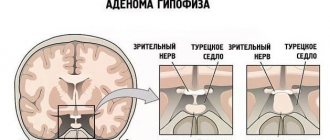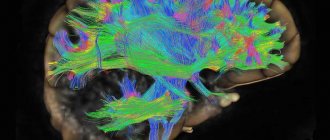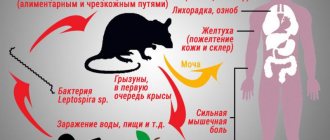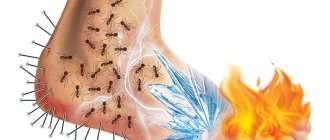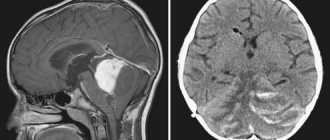Description
Oligophrenia is the underdevelopment of psychological functions due to the action of unfavorable factors during intrauterine development or after birth.
There are three degrees of oligophrenia: idiocy, imbecility, and debility.
Idiocy is the most severe degree of underdevelopment of intelligence. Patients with idiocy are not capable of self-care, express only primitive emotions (screaming, crying), are not able to recognize family and friends, some are not able to walk, make only stereotypical movements, such as rocking back and forth, there is a tendency to copy the emotions and facial expressions of those around the patient of people. Due to the need for constant monitoring and care, such patients are kept in psychoneurological boarding schools and other special social security institutions. As a rule, patients with idiocy do not survive to adulthood, because In addition to psychological abnormalities, this disease is accompanied by multiple defects of internal organs; as a result, the immune system is imperfect. As a result, the body is not able to regulate its somatic functions, which leads to a decrease in its protective properties. Such patients more often die from intercurrent diseases (acute diseases that develop against the background of an existing chronic disease).
Imbecility is a form of mental retardation, characterized by severe mental retardation and the patient’s inability to think abstractly. A person with imbecility has poor articulation and stutters. The vocabulary is poor, which prevents the patient from constructing long, complex phrases. A patient diagnosed with imbecility is able to learn letters, but cannot parse a word letter by letter or construct a word from letters. The patient correctly names objects and knows how to use these objects. A person with imbecility is often attached to his loved ones. Patients are able to learn how to take care of themselves: putting on and taking off clothes, eating with a spoon, going to the toilet, and performing hygiene measures. A person with imbecility is able to repeat simple work actions after the people around him; not without close supervision, the patient quickly begins to get distracted and stops working. With proper training with the patient, it is possible to adapt him to a narrow circle of people, and it is also possible to learn light work. As a rule, people diagnosed with imbecility live in their families.
Moronism is mild mental retardation, with a tendency towards specific situational thinking. Patients diagnosed with debility are characterized by poor memory, normal vocabulary, high ability to imitate, complete preservation of motor functions, and good intelligible speech. A sick person perfectly follows the actions of those around them, is capable of physical labor, and learns to count. However, such people lack understanding of their actions, that is, the patient can wash the dishes without detergent, add unpeeled chicken to the soup, buy an absolutely unnecessary item in the store, go to school a few hours before the start of classes. Education in a regular classroom for a patient diagnosed with retardation is ineffective due to the lack of abstract thinking. In specialized classes, a child can learn writing, reading, simple mathematical calculations (subtraction, addition, multiplication, division), and gain basic knowledge about the world around him. The patient feels and understands well his difference from other people in society. Therefore, such people try to memorize terms used in different areas of life in order to appear smart, but patients diagnosed with retardation can insert these terms at random. They are very trusting and easily fall under the influence of other people. Such people can lead an independent life, in some cases it is possible to graduate from a vocational school, they can master a profession and work under the supervision of a mentor.
According to the causative factor, the following types of oligophrenia are distinguished:
- Endogenous, genetic: these include chromosomal aberrations (Down syndrome), hereditary enzyme deficiencies (phenylketonuria, Marfan syndrome, galactosemia), combined lesions of the central nervous and skeletal systems.
- Embryopathies and fetopathies (fetus - fetus): infectious diseases suffered during pregnancy (rubella, syphilis, toxoplasmosis), consumption of alcohol and non-recommended medications during gestation.
- Birth injuries, birth asphyxia, severe infections at an early age (encephalitis, meningoencephalitis), epilepsy in the postnatal period.
Causes
The main factors influencing the dynamic development of the disease in the fetus also have a direct impact on the body of the expectant mother.
The disease can also develop in the first months of a child’s life against the background of intoxication of the body, brain injuries, and infectious diseases.
Conventionally, all causes are divided into genetic (gross chromosomal abnormalities, as well as gene mutations) and external (perinatal, prenatal and postnatal).
The main causes of mental retardation are:
- the effects of toxins and poisons on the body of a pregnant woman;
- infectious diseases suffered during pregnancy, including severe forms of influenza, rubella, etc.;
- infection of the fetus with protozoa that are in the body of the expectant mother;
- maternal metabolic disorder;
- injuries to the child during pregnancy;
- severe labor (forceps, vacuum, extrusion, hypoxia, asphyxia);
- genetic predisposition in both parents;
- inflammation and brain injury in a child after birth;
- unfavorable environmental conditions;
- maternal use of alcohol, drugs, smoking;
- alcoholism of one of the parents.
Symptoms
Photo: kp.ru
Mental retardation is a disorder due to organic brain damage, i.e. associated with a violation of its structure.
One of the most obvious symptoms of oligophrenia is a violation of the highest manifestations of intelligence (for example, abstract thinking). This manifests itself in the impossibility of a child’s education in a comprehensive school. In pedagogical practice, when talking about such children, they use the term mental retardation (MDD). Also, due to inattention and inability to remember, children with this disorder have difficulty learning even basic things, including self-care. A patient with mental retardation is unable to understand the hidden meaning of what is happening and often does not understand the interlocutor. A person with these disorders tries to get out of an uncomfortable situation with empty thoughts (in mild forms of oligophrenia).
Disorders are also noted in the emotional sphere. The patient is not able to understand and reproduce higher emotions (shame, sympathy, conscience, morality, empathy, responsibility). The emotions of such people are simple and direct, so even in adulthood they are emotionally similar to children.
Difficulty in acquiring basic skills is typical, especially in severe forms of mental retardation. This is due not only to the inability to remember and understand the actions of the mentor, but also to the inability to reproduce coordinated voluntary movements.
The degree of manifestation of these symptoms depends on the severity of the disorder, of which there are three: idiocy, imbecility, and debility.
Prevention
During the period of planning offspring, it is necessary to undergo a thorough examination of the body to exclude viral and bacterial infections. You should definitely consult a specialist in the field of genetics and family planning. The examination must be carried out not only by the mother, but also by the father of the unborn child.
It is recommended for the expectant mother:
- to refuse from bad habits;
- during pregnancy, regularly consult a gynecologist;
- take tests, undergo an ultrasound in each of the three trimesters of pregnancy, do screenings;
- protect yourself from the effects of adverse environmental factors;
- avoid risks of fetal injury.
After the birth of a child, it is necessary to undergo regular examination by a pediatrician , starting from the first months of life, and undergo periodic tests . Parents should be especially attentive to their child, noting any suspicious symptoms. If you have any doubts, immediately contact a pediatrician or neurologist.
Diagnostics
Photo: proaist.ru
In 1965, Soviet psychiatrist G. E. Sukhareva put forward diagnostic criteria for oligophrenia:
- A peculiar psychopathological structure of dementia with a predominance of weakness of abstract thinking with less pronounced violations of the prerequisites of intelligence and relatively less severe underdevelopment of the emotional sphere.
- Non-procedural non-progressive nature of the intellectual defect
- Slow pace of mental development of an individual, violation of ontogenesis (development of the body starting from fertilization of the egg)
- Irreversible nature of the disorders
In severe forms of oligophrenia, organic lesions can also be detected when examining patients using an X-ray computed tomograph (X-ray computed tomograph), electroencephalogram (EEG), magnetic resonance imaging (MRI): additional cavities in the brain, a large volume of the cerebral ventricular system, a violation of the white-to-white ratio gray matter, microcephaly. With severe organic lesions, changes in the shape of the skull are also possible.
Classification
Oligophrenia is subject to various classifications. Let's look at it:
- By severity (traditional classification):
- Debility – when the symptoms are mild.
- Imbecility – when symptoms manifest themselves at an average level.
- Idiocy is when the level of symptoms is very high and makes a person an absolutely dependent person in life.
- Classification according to ICD-10:
- Easy – the level of intelligence reaches 50-70 points.
- Average – the individual’s intelligence level reaches 35-50 points.
- Severe – the patient’s intelligence level reaches 20-35 points.
- Deep - the level of intelligence barely reaches 20 points.
- Classification according to M. S. Pevzner:
- Oligophrenia is uncomplicated.
- Disturbance of neurodynamics, which can manifest itself in three forms: weakness of basic nervous processes, predominance of excitation over inhibition, predominance of inhibition over excitation.
- Frontal lobe deficiency.
- Classification according to M. S. Pevzner, which has been improved:
- Oligophrenia is uncomplicated.
- Oligophrenia with frontal insufficiency.
- Neurodynamic disturbances (excitable and inhibitory).
- Mental retardation with psychopathic behavioral disorders.
- Oligophrenia in violation of various analyzers.
Diagnostics
Oligophrenia is difficult to diagnose. The main emphasis is on the symptoms that should appear in sick people. Diagnostics is carried out according to the following principles:
- There is underdevelopment of the personality at the emotional, volitional, intellectual and other mental levels, which do not reach the norm inherent in a particular age.
- Mental retardation accompanied by other somatic or mental disorders.
- A violation of adaptive behavior that can be corrected if it is facilitated and the appropriate conditions are created.
- Observation of behavioral disorders in the absence of mental disorders.
- Taking an IQ test that shows a certain level of development.
E. Bogdanova proposed the following diagnostic criteria:
- Unproductive memory.
- Low intelligence.
- Attention impairment, when a person has difficulty concentrating, switches quickly, is unstable.
- General speech underdevelopment.
- Specificity, uncritical thinking.
- Lack of cognitive processes.
- Perception is impaired, which is noted in fragmentation, slowness, and low volume of perception.
- Inadequacy of emotions, lack of skills to control your feelings, lack of will.
Treatment
Photo: narkolog-psihiatr.ru
Drug treatment in adult patients does not improve intelligence. But the identification and prevention of oligophrenia in infancy play an important role. Early detection of infections (syphilis, listeriosis, toxoplasmosis) allows treatment to begin in the absence of organic brain lesions. If enzymopathies (enzyme deficiency) are detected, special diets are prescribed (for phenylketonuria, foods containing phenylalanine are excluded), which helps prevent the development of intellectual disorders. When oligophrenia is detected early, medications are prescribed that can mitigate the effects of the disorder (more on this in the “Medications” section).
An important aspect in the treatment of oligophrenics with mild intellectual impairment is social therapy. Such patients are capable of imitation. It is necessary to employ oligophrenics in institutions where they will be constantly monitored by a mentor, otherwise, due to their tendency to become distracted, the patient quickly stops working.
Correction
It is impossible to completely cure mental retardation, even in a mild form, since organic brain damage is irreversible. But it can easily be corrected by child psychiatrists and teachers at specialized schools. Special programs have been developed, based on concrete and visual methods, to help children acquire simple skills and the ability to demonstrate compensatory capabilities.
Training takes place at a slow pace, familiar to the patient. As a result, the patient can freely adapt to the surrounding space and respond appropriately to its changes.
The neurocorrectional assistance program takes into account the child’s neuropsychological characteristics and strengths. It allows you to develop:
- fine motor skills, coordination and motor skills;
- visual-motor coordination - strengthen the muscles of the eyes and the tracking movements of the latter, which is necessary for reading and writing, establish communication between the eye and hand;
- stable connections between the hemispheres of the brain to increase the speed of processing sensory information;
- attention, self-control;
- functions of thinking, spatial perception, ability to construct coherent speech and logical-grammatical construction;
- concept of wrong behavior;
- auditory perception of speech and non-speech sounds, the ability to differentiate tempo-rhythmic patterns.
In some cases, to achieve your goals, there may be a need for a speech therapist, speech pathologist, or neurologist.
Medicines
Photo: popmech.ru
With the early detection of intellectual disorders, nonspecific metabolic agents are prescribed that promote the restoration, development and strengthening of the central nervous system. The following drugs are used:
- Nootropics (piracetam, pyriditol, Semax, phenibut)
- B vitamins
- Amino acids and their precursors (glutamic and succinic acid, cerebrolysin)
People with intellectual disabilities tend to experience anxiety, behavioral and sleep disturbances. Due to the high sensitivity of the brain with organic lesions to neuroleptics, they tend to prescribe drugs with minimal side effects (neuleptil, sonapax, teralen, chlorprothixene). However, if the patient is excessively violent, it is necessary to prescribe stronger drugs (aminazine, haloperidol).
What is bipolar disorder?
Depending on which episodes occur more often (manic or depressive) and how pronounced they are, bipolar disorder is divided into several types Types of Bipolar Disorder.
- Type 1 disorder. It is severe, alternating periods of mania and depression are strong and deep.
- Disorder of the second type. Mania does not manifest itself very clearly, but it covers with depression just as globally as in the case of the first type. By the way, Catherine Zeta-Jones was diagnosed with exactly this. In the actress’s case, the trigger for the development of the disease was throat cancer, which her husband, Michael Douglas, had been battling for a long time.
Regardless of what type of manic-depressive psychosis we are talking about, the disease in any case requires treatment. And preferably faster.
Folk remedies
Photo: venskayadacha.com
Traditional medicine is not able to restore the patient's intelligence
However, it is possible to pacify a person suffering from intellectual disorders during outbursts of violence and aggression. The following herbal collection is suggested: prepare one tablespoon each of fragrant rue and valerian roots, pour boiling water over this collection, let it brew for 30 minutes. Give the person to drink throughout the day, strain before drinking.
For insomnia, take a bath with herbs such as calendula, mint, oregano. Also, to improve sleep, they resort to decoctions of valerian root (pour 1.5 cups of boiling water into 2 tablespoons of valerian root, heat in a water bath for 15 minutes. Take 3 tablespoons after meals before bed).
The information is for reference only and is not a guide to action. Do not self-medicate. At the first symptoms of the disease, consult a doctor.
What is bipolar disorder
At first glance, there's nothing wrong with it. Just mood swings. For example, in the morning you want to sing and dance with the joy of being alive. In the middle of the day, you suddenly lash out at your colleagues who are distracting you from something important. By the evening, a severe depression rolls over you, when you can’t even raise your hand... Sound familiar?
The line between mood swings and manic-depressive psychosis (this is the second name of this disease) is thin. But it is there.
The worldview of those who suffer from bipolar disorder constantly swings between two poles. From an extreme maximum (“What a thrill it is to just live and do something!”) to an equally extreme minimum (“Everything is bad, we’re all going to die. So, maybe there’s nothing to wait for, it’s time to commit suicide?!”). The highs are called periods of mania. The lows are periods of depression.
A person realizes how stormy he is and how often these storms have no reason, but he cannot do anything with himself.
Manic-depressive psychosis is exhausting, worsens relationships with others, sharply reduces the quality of life and can ultimately lead to suicide.
Sources
- Manual of Psychiatry. In 2 volumes. T.1/A. S. Tiganov, R 84 A. V. Snezhnevsky, D. D. Orlovskaya and others; Ed. A. S. Tiganova. - M.: Medicine, 1999. - 712 p.: ill., [2] l. ISBN 5-225-02676-1
- N. N. Ivanets, Yu. G. Tkshyshn, V.V. Chirko, M. A. Kinkulishna: Psychiatry and Narcology. - M.: GEOTAR-Media, 2006.-832 p.
- V. P. Samokhvalov: Psychiatry. – textbook for medical universities: 2002 - 324 p.
- Fundamentals of psychiatry: visual materials for a course of lectures for 0-75 students studying in the specialty 1-23 01 04 “Psychology” / comp. A. I. Gorbachev. – Minsk: BSU, 2014. – 73 p.




